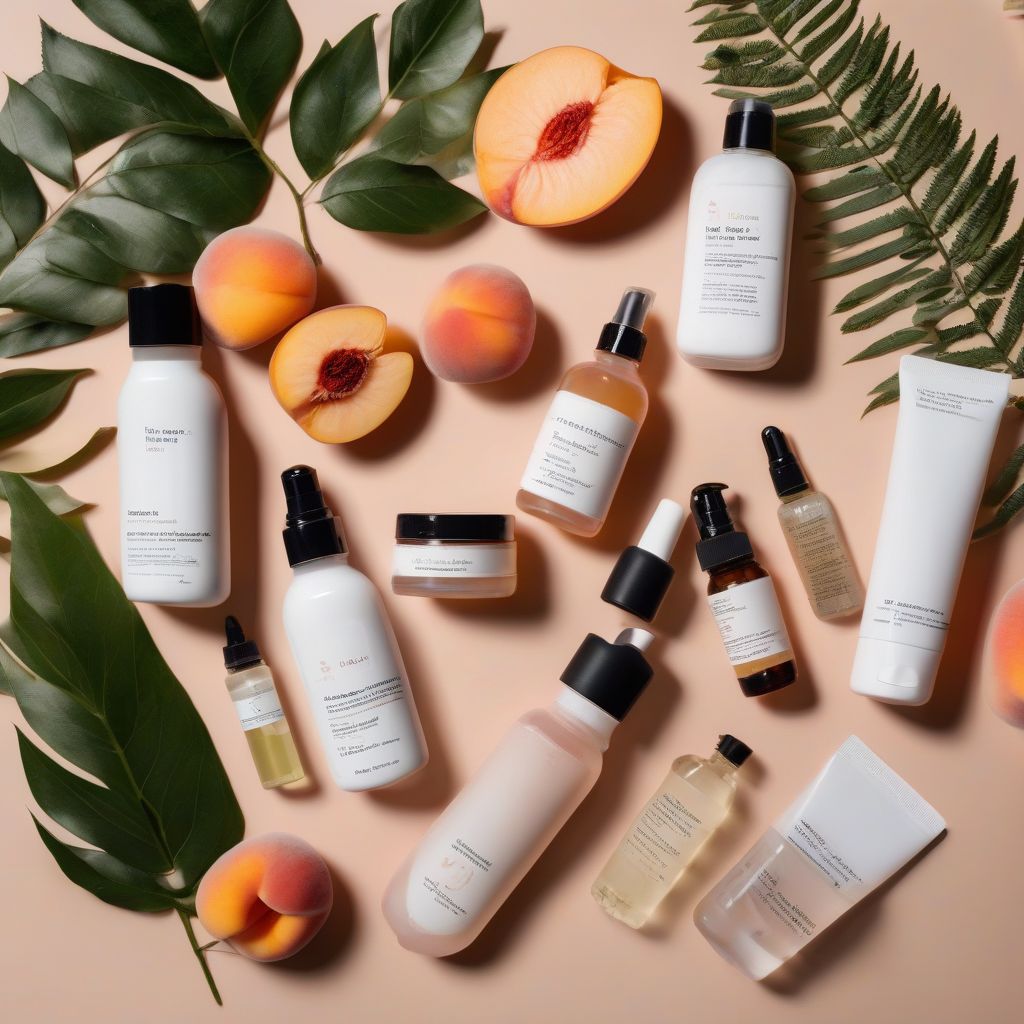Ever dreamt of waking up with that coveted “glass skin” glow, only to be greeted by a new friend on your face? You’re not alone! As a nutritionist and meal prepping coach, I know achieving radiant skin goes beyond just diet. Finding the right skincare, especially if you’re prone to acne, can feel like navigating a minefield. But fear not, because we’re about to break down everything you need to know about beauty product reviews for acne-prone skin.
Understanding Acne-Prone Skin: It’s More Than Just Pimples
Before diving into the world of serums and spot treatments, it’s crucial to understand what makes skin acne-prone. While genetics play a role, factors like excess oil production, clogged pores (thanks to dead skin cells!), bacteria, and inflammation are often the culprits.
Common Misconceptions and What Actually Helps
Many people believe that acne is caused by a dirty face or eating greasy food. While a good cleansing routine and a balanced diet are essential, they’re not the only pieces of the puzzle. In reality, using harsh products can strip your skin of its natural oils, leading to more oil production and breakouts. Similarly, while some foods might trigger breakouts in certain individuals, there’s no one-size-fits-all “acne diet.”
Here’s what actually helps:
- Gentle Cleansing: Wash your face twice a day with a mild cleanser that suits your skin type.
- Exfoliation: Regular exfoliation (1-2 times a week) helps remove dead skin cells that can clog pores.
- Hydration: Even oily skin needs hydration! Look for oil-free, non-comedogenic moisturizers.
- Sun Protection: UV rays can worsen acne scars and inflammation. Apply sunscreen with at least SPF 30 daily.
 Best Products for Acne Prone Skin
Best Products for Acne Prone Skin
Decoding Beauty Product Reviews: Your Secret Weapon
With countless products flooding the market, reviews can be your guiding light. But how do you sift through the noise and find genuine feedback?
Key Things to Look for in Reviews:
- Skin Type: Pay attention to reviews from people with similar skin types to yours (oily, combination, sensitive, etc.).
- Specific Concerns: Look for reviews that address your specific concerns, like blackheads, whiteheads, cystic acne, or acne scarring.
- Ingredients List: Familiarize yourself with common acne-fighting ingredients (salicylic acid, benzoyl peroxide, tea tree oil) and their potential side effects.
- Before & After Photos: While not always reliable, before & after photos can give you a visual idea of a product’s effectiveness.
- Long-Term Results: Look for reviews that discuss a product’s long-term effects, as some products might offer quick fixes but not sustainable results.
Navigating Reviews on Different Platforms:
- E-commerce Websites: Websites like Amazon, Sephora, and Ulta offer a vast number of reviews but can be prone to fake reviews. Focus on verified purchase reviews.
- Beauty Blogs and Forums: Beauty bloggers and forums often provide in-depth reviews and comparisons.
- Dermatologist Websites: Some dermatologists have blogs or sections on their websites where they review popular products.
Top Ingredients to Look for in Acne-Fighting Products
Knowing which ingredients to look for is half the battle won. Here’s a breakdown of some powerhouse ingredients that deserve a spot in your skincare routine:
-
Salicylic Acid: This beta-hydroxy acid (BHA) penetrates pores to exfoliate dead skin cells and unclog pores. It’s particularly effective for blackheads and whiteheads.
-
Benzoyl Peroxide: This antimicrobial ingredient kills acne-causing bacteria. It comes in different concentrations, so it’s essential to start with a lower concentration to avoid dryness and irritation.
-
Tea Tree Oil: A natural antibacterial and anti-inflammatory agent, tea tree oil can help soothe inflammation and reduce the appearance of pimples.
-
Niacinamide (Vitamin B3): Niacinamide helps control oil production, reduces redness, and minimizes pores.
-
Retinoids: Derived from Vitamin A, retinoids increase cell turnover and help prevent clogged pores. They can be potent, so start with a low concentration and use them at night.
[amazon bestseller=”acne-prone-skin”]
Building Your Acne-Fighting Skincare Routine: A Step-by-Step Guide
Crafting an effective skincare routine doesn’t have to be complicated. Here’s a simple yet effective routine:
Morning:
- Cleanse: Use a gentle cleanser to remove any overnight oil and impurities.
- Treat: Apply a serum containing ingredients like niacinamide or salicylic acid.
- Moisturize: Use a lightweight, oil-free moisturizer.
- Protect: Apply sunscreen with at least SPF 30, even on cloudy days.
Evening:
- Cleanse: Double cleanse if you wear makeup, starting with an oil-based cleanser followed by your regular cleanser.
- Treat: Apply a retinoid (start with a low concentration and gradually increase as tolerated).
- Moisturize: Use a slightly richer moisturizer than your daytime moisturizer.
Important Tips:
- Patch Test: Always patch test a new product on a small area of your skin before applying it to your entire face.
- Introduce Products Gradually: Avoid introducing too many new products at once. Start with one new product every two weeks to assess your skin’s tolerance.
- Listen to Your Skin: Pay attention to how your skin reacts to products. If you experience excessive dryness, irritation, or breakouts, discontinue use.
- Consult a Dermatologist: If you have persistent or severe acne, it’s essential to consult a board-certified dermatologist for personalized advice.
Conclusion: Your Skin, Your Journey
Remember, there’s no one-size-fits-all solution when it comes to acne-prone skin. It’s about finding what works best for you. By understanding your skin type, decoding beauty product reviews, and choosing the right ingredients, you can take control of your skin’s health and achieve a clear, radiant complexion.
Do you have any holy grail products or tips for managing acne-prone skin? Share your experiences and recommendations in the comments below! Let’s build a supportive community where we can all achieve our skincare goals. Don’t forget to share this guide with friends or family who might benefit from it!
